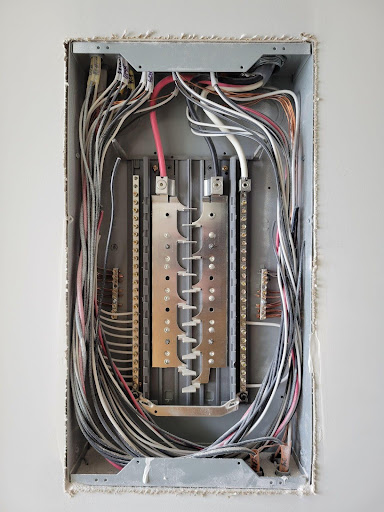The Value of Home Inspections in New Construction
When investing in new construction, the assumption often is that everything will be built perfectly according to standards. However, the construction process is complex and prone to human error, making home inspections an invaluable part of purchasing a newly constructed home. These inspections, conducted by impartial third-party home inspectors, play a crucial role in identifying issues at various construction stages—issues that, if unnoticed, could lead to costly repairs down the line. Let’s explore the different stages at which inspections can be performed and the unique value they bring.
Detailed Inspection Stages in New Construction
1. Foundation Inspection
Before the concrete is poured, a foundation inspection is crucial for ensuring the long-term stability of the home. An inspector will look at:
- Footings and Foundations: Assessing the size, depth, and configuration of footings for structural integrity.
- Soil Conditions and Grading: Ensuring the site is properly graded for drainage away from the foundation.
- Waterproofing and Drainage: Checking that waterproofing measures are correctly applied and that drainage systems are in place to prevent water accumulation.
- Conducting the Assessment: The inspector uses visual examination and may employ tools like moisture meters to assess the potential for water issues.

2. Framing and Pre-Drywall Inspection
This stage is pivotal as it sets the framework for the entire home. Key areas of focus include:
- Structural Components: Verifying that beams, joists, and studs are properly installed, sized, and supported to carry the anticipated loads.
- Rough Electrical, Plumbing, and HVAC: Examining the installation of these systems for compliance with codes and functionality, ensuring there are no obstructions or incorrect placements that could cause issues once the walls are closed.
- Window and Door Frames: Checking for correct installation to prevent future issues with opening, closing, or sealing.
- Conducting the Assessment: Inspectors use a combination of visual inspection and tools like levels to check the alignment and placement of structural components. They also review building plans to ensure installations match the intended design.
3. Closing Inspection
At this final stage before the home is officially completed, inspectors conduct a thorough review of:
- Finishes: Examining walls, flooring, and ceilings for proper installation and finish quality.
- Operational Testing of Systems and Appliances: Ensuring that all systems (HVAC, electrical, plumbing) and appliances are functioning as expected.
- Exterior Elements: Assessing siding, roofing, gutters, and landscaping for proper installation and potential issues.
- Conducting the Assessment: This comprehensive inspection involves both visual examination and functional testing of all components, including running appliances, testing outlets, and inspecting the operation of windows and doors.
4. Follow-up Warranty-Based Inspections
Conducted typically within the first year of occupancy, these inspections aim to:
- Identify Settlement Issues: Checking for signs of settling in the foundation or structure that may have caused cracks or misalignments.
- System Performance: Assessing how well the HVAC, electrical, and plumbing systems have performed under normal use conditions.
- Finish and Material Durability: Evaluating how finishes and materials have held up after a period of occupancy.
- Conducting the Assessment: Inspectors look for new or worsening issues since the closing inspection, employing both visual inspection techniques and testing tools to evaluate system performance.
The Critical Role of Building Systems and Component
Assessments
At each stage, the inspector’s role is to meticulously evaluate critical building systems and components for compliance with quality building practices, craftsmanship, and functionality. This involves a detailed understanding of construction practices, an eye for potential problems, and the use of specialized tools to measure, test, and validate various aspects of the construction.

The Impartiality of Third-Party Home Inspectors
A key advantage of hiring a third-party home inspector is the assurance of an unbiased assessment. Unlike builders or contractors, who may have a vested interest in minimizing issues to meet deadlines or reduce costs, independent inspectors prioritize the homeowner’s interests. Their sole objective is to ensure the construction meets all standards and codes, and that the homebuyer is making a sound investment. This impartial oversight can identify potential shortcuts or oversights made during construction, safeguarding the homeowner from future problems.
Why Home Inspections Are Invaluable in New Construction
- Peace of Mind: Knowing that each construction phase has been thoroughly inspected and approved by an unbiased professional offers homeowners confidence in their investment.
- Cost Savings: Identifying and addressing issues early can prevent costly repairs after the warranty period has expired or after issues have caused significant damage.
- Quality Assurance: An independent inspection ensures that the home lives up to the quality standards expected by the homeowner.
A Small Price for Significant Peace of Mind
While new construction offers the allure of a brand-new home built to your specifications, the construction process itself is not immune to defects. In the grand scheme of investing in a new construction home, the cost of a third-party home inspection is relatively minimal, yet it offers disproportionate value in return. When you consider the substantial investment involved in purchasing a new home, the expense of an inspection — which typically amounts to a fraction of the home’s overall cost — is a wise safeguard. This small upfront cost can potentially save thousands in unforeseen repairs, ensure compliance with good building practices, and offer an unbiased evaluation of the home’s condition.
The value of a new construction home inspection lies not just in identifying issues before they become costly problems but in providing homeowners with peace of mind. Knowing that an impartial expert has thoroughly evaluated your new home at crucial stages of its construction offers reassurance that the property is safe, well-built, and a sound investment. Moreover, the detailed insights gained from these inspections empower homeowners to make informed decisions, negotiate effectively, and prioritize any necessary corrections while still under warranty.